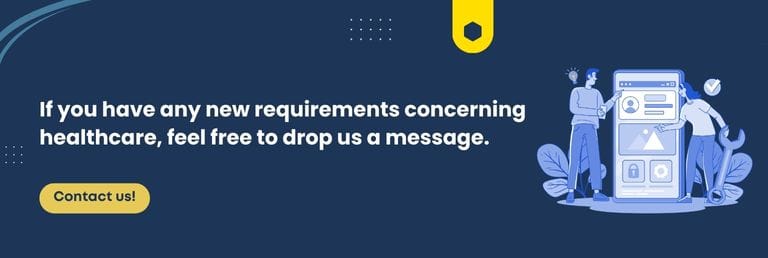Healthcare App Development: How to Build a Mobile Health App in 2025
Keyur Patel
September 12, 2025
14 min
As you deep-dive into healthcare app development, the key question is, Why build a healthcare app? Since the COVID-19 pandemic, real-time patient monitoring and mHealth have become top priorities. People are increasingly embracing digital health solutions and using them effectively to access care. As rightly said by Apple CEO Tim Cook, it is time that we must use technology to bridge the gap between healthcare and accessibility.
The global digital health market covering telehealth, apps, wearables, and platforms is projected to reach $427.24 billion in 2025 and skyrocket to $1.5 trillion by 2032 (CAGR: 19.7%). This rapid growth demonstrates why healthcare mobile app development and medical app development are in such high demand, as patients and providers look for secure, innovative, and user-friendly solutions.
However, when organizations set out on their healthcare application development journey, they quickly face a set of complex challenges. These include:
-
Regulatory compliance and legal requirements that vary by region
-
Data security and privacy protection under laws like HIPAA and GDPR
-
Interoperability challenges with existing electronic health records (EHRs)
-
Clinical validation and evidence requirements to prove app effectiveness
-
User experience vs. security trade-offs, balancing simplicity with protection
-
Integration with healthcare workflows to ensure adoption by clinicians
-
Funding and business model challenges for long-term sustainability
-
Liability and insurance concerns in case of errors or misdiagnoses
-
Technical infrastructure requirements such as scalability and uptime
Despite these pain points, the demand is undeniable. According to Insider Intelligence, nearly two-thirds of US adults already use mobile health apps. The National Library of Medicine notes that 59% of participants have used at least 1–3 health apps. IQVIA reports over 90,000 health apps available in app stores (with 250 released per day in 2020 alone), and a 32% increase in adoption was recorded during the pandemic.
This suggests we are firmly entering an era where modern healthcare solutions are no longer optional they are essential. Consumers are actively seeking digital tools, and businesses that act now can seize a transformative opportunity.
To help you navigate healthcare mobile app development, this comprehensive guide will walk you through strategies, best practices, and lessons from real-world success stories equipping you to create a secure, compliant, and impactful healthcare application.
What Is a Healthcare App?
A healthcare app is a digital solution designed to deliver mHealth services that improve patient care, streamline healthcare processes, and enhance accessibility. These applications allow users to track their health, monitor medical conditions, book doctor appointments, access telemedicine services, and securely manage health records all from a mobile device.
Healthcare apps can be categorized into several types, including:
-
Health tracking apps (e.g., fitness, vitals, chronic disease management)
-
Doctor appointment booking apps
-
Telemedicine and virtual consultation apps
-
Medical networking apps (connecting patients, doctors, and specialists)
-
Electronic health record (EHR/EMR) apps
These solutions not only enhance patient well-being but also improve communication between patients and medical professionals, offering convenience and real-time access to healthcare services.
As demand for healthcare mobile app development continues to surge, investing in a well-designed application can help healthcare providers deliver personalized, accessible, and high-quality care while giving patients greater control over their health.
Why Should You Consider Healthcare App Development?
The rise of healthcare mobile apps is reshaping how medical institutions deliver services and how patients access care. By streamlining workflows, reducing inefficiencies, and enhancing patient outcomes, healthcare application development has become a powerful tool for both providers and patients. Beyond the market growth statistics, the real value lies in how these solutions address practical challenges within the healthcare ecosystem. For instance, apps provide timely healthcare support regardless of a patient’s location, ensuring accessibility in both urban and remote areas. They also foster stronger patient engagement and loyalty by offering personalized experiences, reminders, and seamless communication with providers. In addition, digital platforms significantly reduce the chances of human error by automating records, prescriptions, and follow-ups.
Healthcare app development also enables the integration of advanced technologies like AI for predictive diagnostics, machine learning for personalized treatment plans, and blockchain for enhanced data security. These innovations directly address key pain points such as data privacy, interoperability, and user trust. Concerns around regulatory compliance can also be mitigated when apps are designed with frameworks like HIPAA, GDPR, and FDA requirements in mind, ensuring legal and ethical standards are fully met. Similarly, challenges like clinical validation, user experience versus security trade-offs, or integration with existing healthcare workflows can be overcome with thoughtful design and robust testing. Even funding and business model uncertainties can be reduced when the app is built with scalability and long-term sustainability in focus.
This demonstrates that medical app development is not simply about creating a digital tool but about designing a reliable, secure, and user-centric healthcare ecosystem. At IT Path Solutions, our team combines technical expertise with hands-on knowledge of HIPAA, FDA, ADA, PSQIA, ACA, CCPA, ONC, SAMHSA, NIST, PIPEDA, GDPR, MDR, IVDR, DPA, and NCPDP regulations, helping businesses turn these challenges into opportunities. By aligning compliance, user needs, and innovation, we empower healthcare providers to scale efficiently while improving patient trust and care quality.
Types of Healthcare Apps You Can Build
Healthcare offers a broad spectrum for you to try it out. However, without prior experience or help from the experts, it is very difficult to outshine the most demanding market. Here are a few healthcare app startup ideas that you can try for your business.
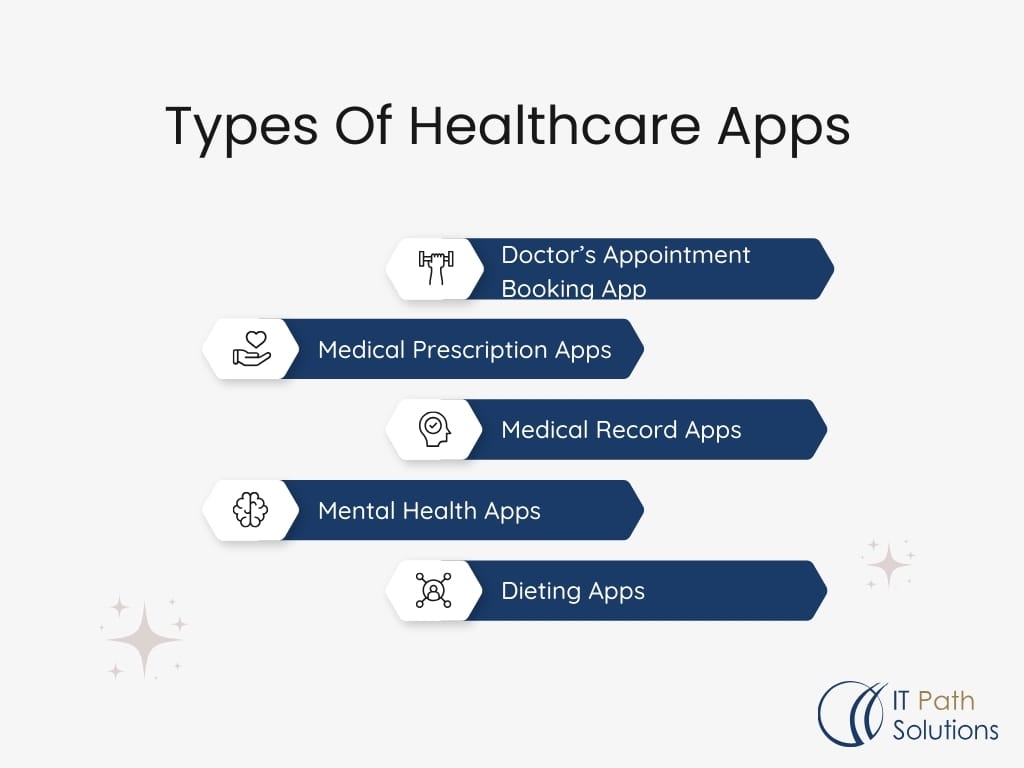
-
Doctor’s appointment booking application:
Develop an application that streamlines the appointment booking procedure. This kind of application provides users with a list of doctors and their available appointment slots. Users/patients can select the time comfortable and book an appointment with a single click.
The advanced application supports video calling and in-app messaging between the doctor and patients. On-Demand Doctor App Development enables seamless communication, ensuring patients receive timely medical assistance from healthcare professionals.
-
Medical prescription apps:
E-prescription applications assist doctors in prescribing drugs to patients digitally. Such applications need to comply with various regulatory standards to ensure that the drug is prescribed in a controlled dosage and that no adverse effects are observed.
Some medical prescription apps like RxEasy and STAT also allow patients to print prescriptions for procuring medicines from the pharmacy.
-
Medical record apps:
Medical record-keeping apps allow users to upload and store all their medical records in one place. These important records can be used to store patient’s personal information such as blood pressure, body temperature, ongoing treatments, prescriptions, appointments, etc that can later be used during the treatment process. This eliminates the need to carry printed or photocopied reports everywhere, whenever they visit the doctor.
-
Mental Health Apps:
Mental health apps focus on providing medical assistance to people suffering from depression, anxiety, stress, or any sleep disorders. Mental health apps have some prerecorded sessions that help people find relief from these problems.
-
Dieting apps:
If you are a health enthusiast, you probably know how important it is to track every calorie consumed. Dieting apps in healthcare help users count their calories, meal planning, water consumption reminders, and many more such health-specific goals.
Here is a list of a few successful healthcare apps operating in various domains.
Many healthcare startups are transforming patient care by offering innovative solutions for disease management and treatment. Let’s explore some of the most popular healthcare apps making a significant impact in the industry.
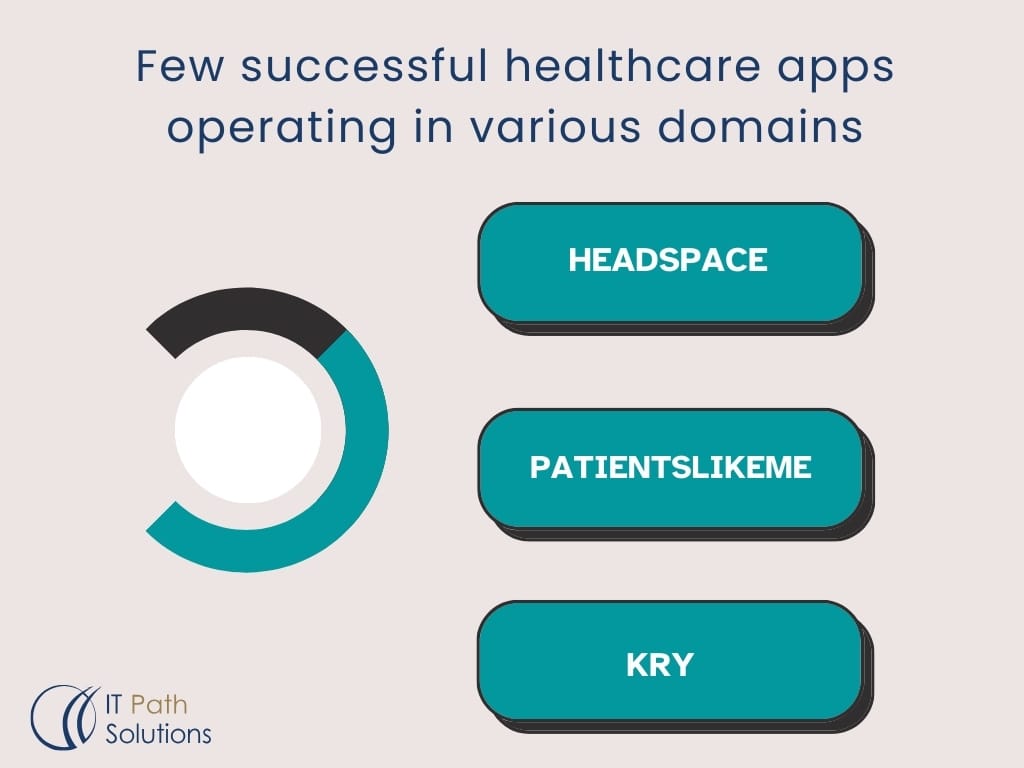
Headspace:
One of the most admired mental health applications is Headspace. It provides hundreds of meditation sessions, workouts, stress management programs, etc. If you wish to develop a meditation app like Headspace, you should get in touch with us. We can provide you with comprehensive guidance about the app development process and how you can achieve this goal.
PatientsLikeMe:
The concept-based app, PatientsLikeMe helps people connect with people with the same disease and condition in real time. It facilitates instant messaging so that people can communicate, discuss, or find answers to their health symptoms.
Patients can know individuals suffering from a similar disease and learn about treatments that work for them.
PatientsLikeMe has a feature called DailyMe that helps patients record their daily moods and feelings.
Kry:
Kry, a video consultation application has treated over 800,000 patients seeking video appointments with psychologists. The application supports 25 different languages with doctors and psychologists offering assistance in the chosen language.
How to Generate Revenue from a Healthcare App
The right monetization strategy plays a vital role in the long-term success of your healthcare application. Whether you’re building a telemedicine platform, a fitness tracker, or an electronic health record app, your revenue model must balance profitability, user trust, and compliance. Here are some proven ways to generate revenue from a healthcare mobile app:
1. Pay-Per-Service Model
One of the most widely adopted models in medical app development, pay-per-service allows users to pay only for the specific service they use—such as teleconsultations, lab test bookings, or wellness sessions. This flexibility makes it appealing to patients, while ensuring that providers earn as utilization increases.
2. Premium Subscriptions
Offering weekly, monthly, or yearly subscription plans can unlock premium features like priority doctor access, instant appointment bookings, guided health sessions, or advanced health insights. Subscription models provide recurring revenue, making them one of the most sustainable strategies in healthcare application development.
3. In-App Advertising
Partner with healthcare brands, pharmacies, or wellness providers to display relevant, non-intrusive ads within your app. If executed carefully, in-app advertising not only generates additional revenue but also improves user experience by offering helpful recommendations.
4. Commission-Based Marketplace
If your healthcare app connects patients with doctors, diagnostic centers, or pharmacies, you can charge a commission on each successful transaction. This model works well for platforms that act as a trusted intermediary, similar to how food delivery and ride-hailing apps operate.
5. Freemium + Microtransactions (Optional Add-on)
Another popular approach is offering a free version of the app with basic features, while charging users for premium tools such as advanced tracking, specialist consultations, or personalized health reports.
Challenges Involved While Developing a Healthcare Application:
No app development journey is easy without an expert’s knowledge and help. At IT Path Solutions we have extensive experience developing successful healthcare apps while addressing the challenges involved.
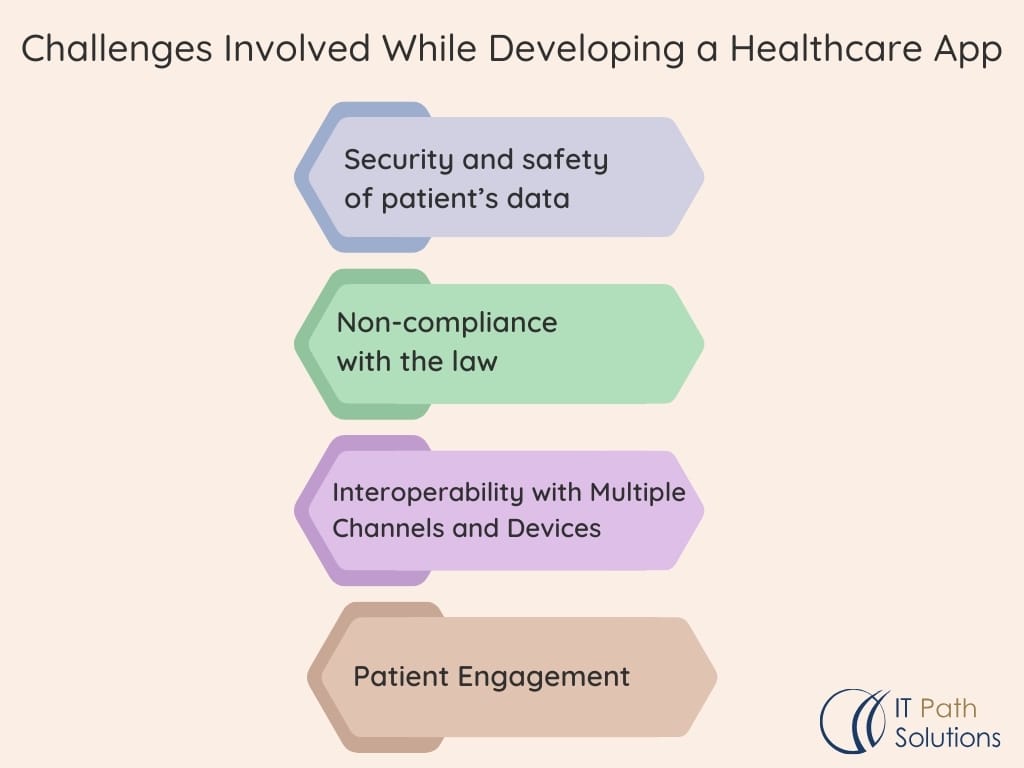
Here are a few known challenges that you might face while developing healthcare apps:
-
Security and safety of patient’s data:
Healthcare applications have a lot of information stored under the umbrella, from patient’s medical history to billing to personal data. All of these are put at risk in case of any cyber-attacks or data theft.
Therefore, incorporating cloud security practices becomes critical during app development.
-
Non-compliance with the law:
Healthcare mobile applications must adhere to various regulations specific to the country in which they operate. Failure to comply can result in the app being banned. Therefore, it is essential to ensure strict adherence to regulations concerning data storage, encryption, access control, and other security measures.
-
Interoperability with multiple channels and devices:
Your audience can be present anywhere, agreed, but in the quest of making an online presence on all the platforms, make sure that the flow of experience is not hindered. Make use of FHIR and HL7 to ensure a secure exchange of data and cross-platform compatibility.
-
Patient engagement:
Since mobile healthcare applications deal with everything online, it is difficult to keep the patients engaged. Be it during the video calling or internet loss scenario, you need to try hard to keep up with the engagement.
What Are The Features Of a Healthcare Application?
A well-designed healthcare app enhances patient care, streamlines operations, and improves accessibility. Key features include:
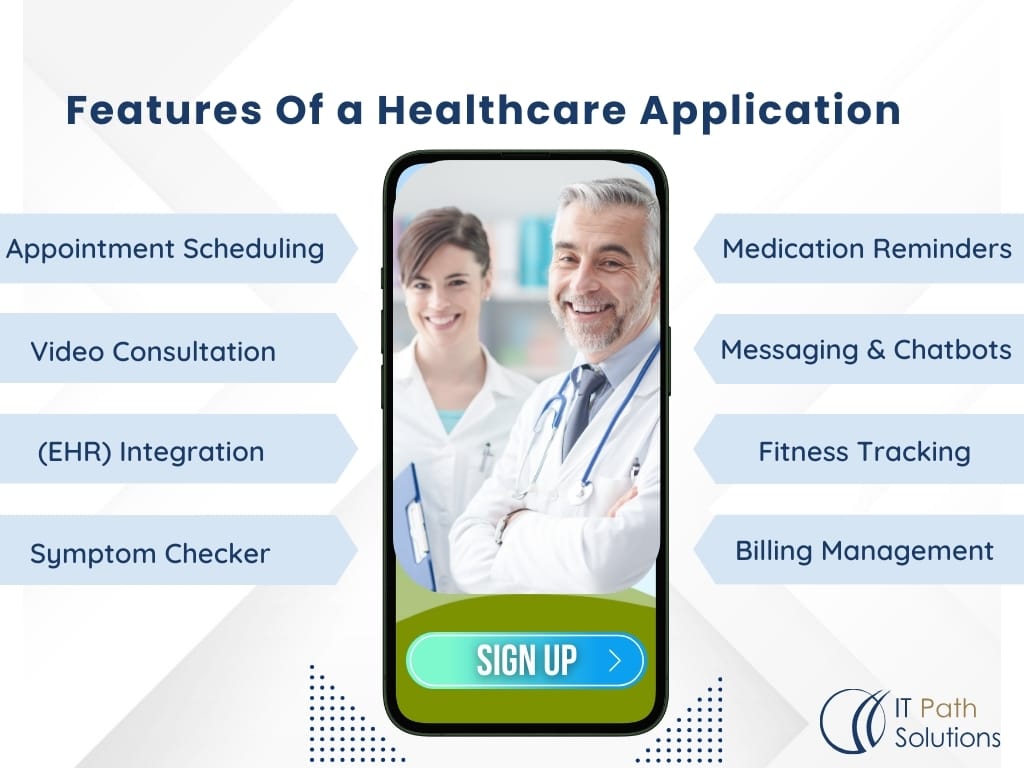
- Appointment Scheduling – Allows users to book, reschedule, or cancel appointments with healthcare providers seamlessly.
- Telemedicine & Video Consultation – Enables virtual doctor consultations for remote healthcare access.
- Electronic Health Records (EHR) Integration – Provides secure access to patient medical history, prescriptions, and treatment plans.
- AI-powered Symptom Checker – Assists users in evaluating symptoms and receiving preliminary health insights.
- Medication Reminders – Sends notifications to ensure timely medication intake.
- Secure Messaging & Chatbots – Facilitates real-time communication with doctors, support staff, or AI-driven assistants.
- Health & Fitness Tracking – Integrates with wearable devices to monitor vital signs, activity levels, and wellness metrics.
- Billing & Insurance Management – Simplifies payment processing, insurance claims, and coverage verification.
- Data Security & Compliance – Ensures HIPAA/GDPR compliance for protecting patient information.
What Are The Benefits of Healthcare Application Development For Doctors and Patients?
Healthcare apps offer countless benefits to medical professionals as well as patients in multiple ways. Let’s understand how.
Benefits For Doctors:
| Fast decision making | Healthcare software and AI-driven tools provide real-time patient data, allowing doctors to make quicker and more informed decisions. |
| Accurate diagnosis | Advanced medical technologies, including AI-powered diagnostics and machine learning algorithms, assist doctors in identifying diseases with higher precision, minimizing human errors, and enhancing accuracy in medical assessments. |
| Electronic Health Record | Digital EHR systems centralize patient records, making it easier for doctors to access medical histories, prescriptions, and test results instantly. |
| Effective communication | Integrated communication tools such as telemedicine platforms and secure messaging systems enable seamless collaboration between doctors, specialists, and healthcare staff, ensuring timely decision-making and coordinated patient care. |
| Improved Patient Monitoring | Wearable devices and remote patient monitoring systems provide real-time health data, allowing doctors to track patient conditions continuously. |
| ePrescription | Electronic prescription systems eliminate manual errors, provide instant access to medication history, and enable automated refills. |
| Less Stress | Automation of administrative tasks, improved workflow efficiency, and AI-assisted decision-making reduce doctors’ workload and stress levels. |
| Better service and equipment management | Smart hospital management systems optimize the allocation and maintenance of medical equipment, ensuring doctors have the necessary tools available at the right time. |
Benefits for Patients:
| Instant patient care | Advanced healthcare solutions enable faster diagnosis and treatment through telemedicine, AI-driven diagnostics, and automated appointment scheduling. |
| Effective communication with the doctor | Telehealth platforms, secure messaging apps, and video consultations allow patients to connect with doctors easily. |
| Convenience and comfort | Digital healthcare services, such as online consultations, e-prescriptions, and home monitoring devices, provide patients with easy access to medical care from the comfort of their homes, reducing the need for frequent hospital visits. |
| Quick medication reminders | Automated alerts and smart apps remind patients to take their medications on time, reducing missed doses and improving adherence to prescribed treatments, leading to better health outcomes. |
| Time and Cost Saving | Remote consultations, online appointment scheduling, and AI-driven diagnostics reduce the need for unnecessary hospital visits, saving both time and travel costs for patients while making healthcare more affordable and accessible. |
What Is The Mobile App Development Process For Healthcare App Development?
Healthcare app development has a huge market and to survive the competition, you need to have a development partner who knows the ins and outs of it. An experienced mobile app development company thoroughly analyses your requirements and provides a strategic roadmap for app development.
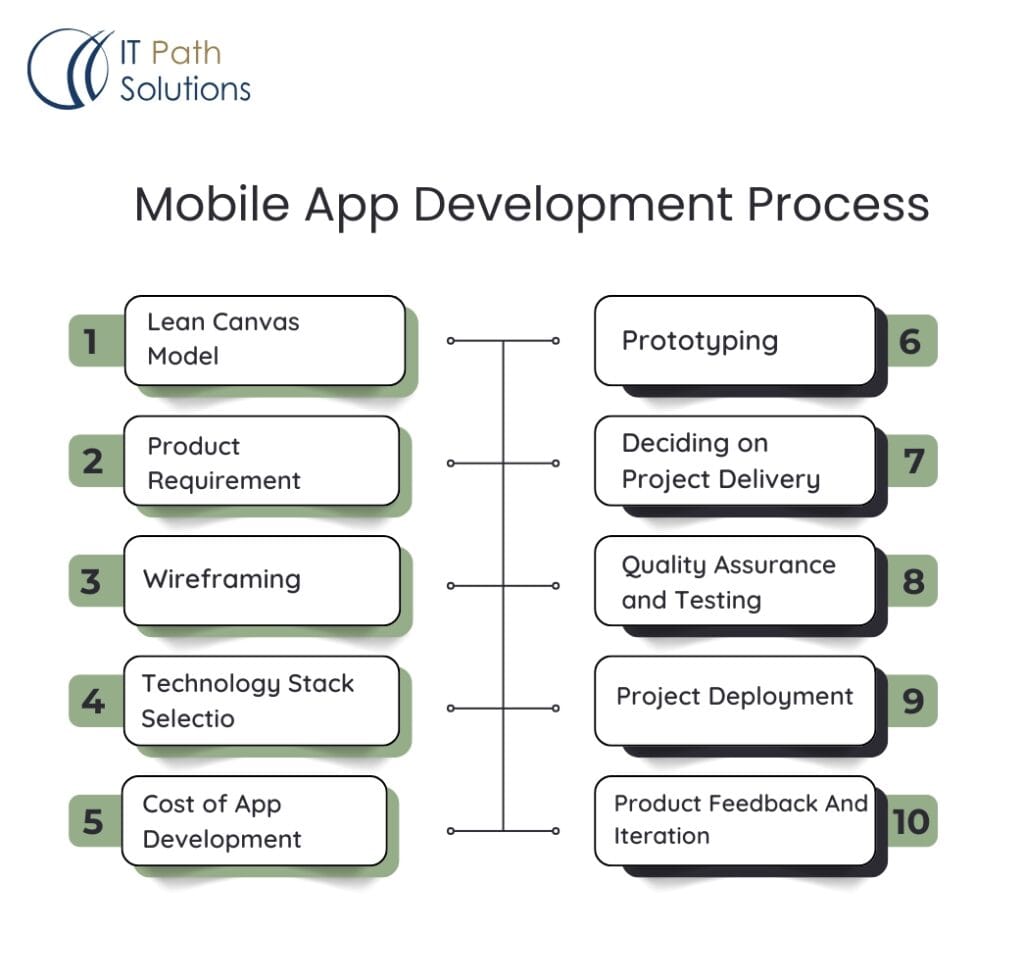
At IT Path Solutions, our development team discusses the requirements with you, and we run down competitor analysis to figure out the current trends that you can incorporate in healthcare app development. Our strategic app development process gives us an upper hand over development. You can read more about our step-by-step process in the blog that we have written.
For any queries, feel free to get in touch with us.
How Much Does It Cost To Develop a Healthcare Application?
The cost of healthcare app development is subjective to many factors including,
- Complexity of app;
- UI/UX
- The platform of app development
- Location of the app development partner;
- Hourly rates of developer;
To give you an estimate, the cost of healthcare app development ranges between $25,000 to $50,000 (approximately). For more accurate figures, please discuss your app development requirements with us.
Conclusion:
Healthcare apps are no longer just a trend they are transforming how patients access care and how providers deliver it. From telemedicine platforms to medicine delivery apps, these solutions streamline operations, improve data management, enhance patient outcomes, and give healthcare organizations a strong competitive edge.
However, healthcare app development comes with unique challenges such as compliance, security, interoperability, and scalability. That’s where our expertise makes the difference. With proven methodologies, regulatory know-how, and hands-on experience, we help businesses build secure, user-friendly, and future-ready healthcare applications that drive real results.

Keyur Patel
Co-Founder
Keyur Patel is the director at IT Path Solutions, where he helps businesses develop scalable applications. With his extensive experience and visionary approach, he leads the team to create futuristic solutions. Keyur Patel has exceptional leadership skills and technical expertise in Node.js, .Net, React.js, AI/ML, and PHP frameworks. His dedication to driving digital transformation makes him an invaluable asset to the company.
Related Blog Posts
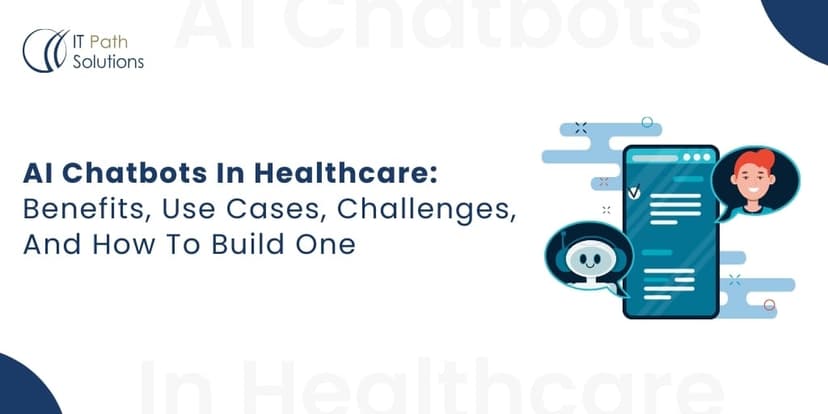
AI Healthcare Chatbot Development: Benefits, Use Cases, HIPAA Compliance, Challenges & How to Build One
A worried new mother sits awake at 2 a.m., startled by an unfamiliar cough from her infant. Instead of panicking or waiting until morning, she opens a HIPAA-compliant AI healthcare chatbot on her phone. She describes the symptoms, and within seconds, receives clear, trustworthy guidance. The chatbot reassures her, provides next steps, and even offers… AI Healthcare Chatbot Development: Benefits, Use Cases, HIPAA Compliance, Challenges & How to Build One
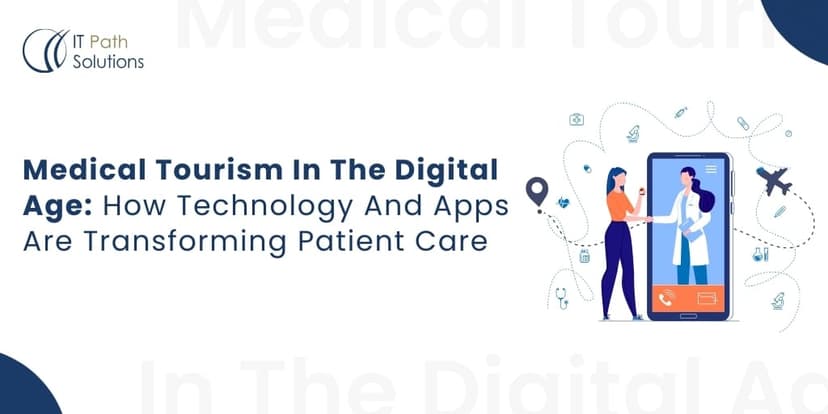
Medical Tourism In The Digital Age: How Technology And Apps Are Transforming Patient Care
A traveler books a flight for surgery abroad, then realizes the most challenging part is not the flight. It is comparing hospitals, reading outcomes, moving records, and staying connected during recovery. What if a trusted platform coordinated every step, from virtual consultations to post-care follow-ups, with price clarity and real-time support? That is the promise… Medical Tourism In The Digital Age: How Technology And Apps Are Transforming Patient Care
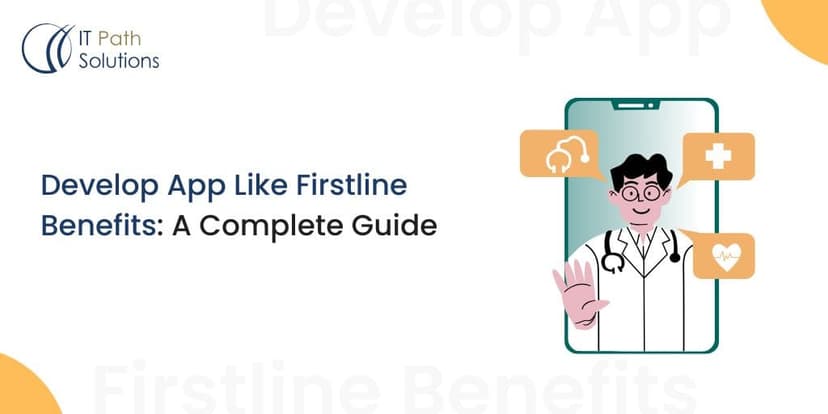
Develop App Like Firstline Benefits: A Complete Guide
The Firstline Benefits app has revolutionized how users access and manage their health and wellness benefits. By offering a seamless, user-friendly platform, Firstline Benefits has set a new standard in healthcare technology. If you’re looking to develop an app like Firstline Benefits, this guide will take you through every aspect—from key features to the tech… Develop App Like Firstline Benefits: A Complete Guide

